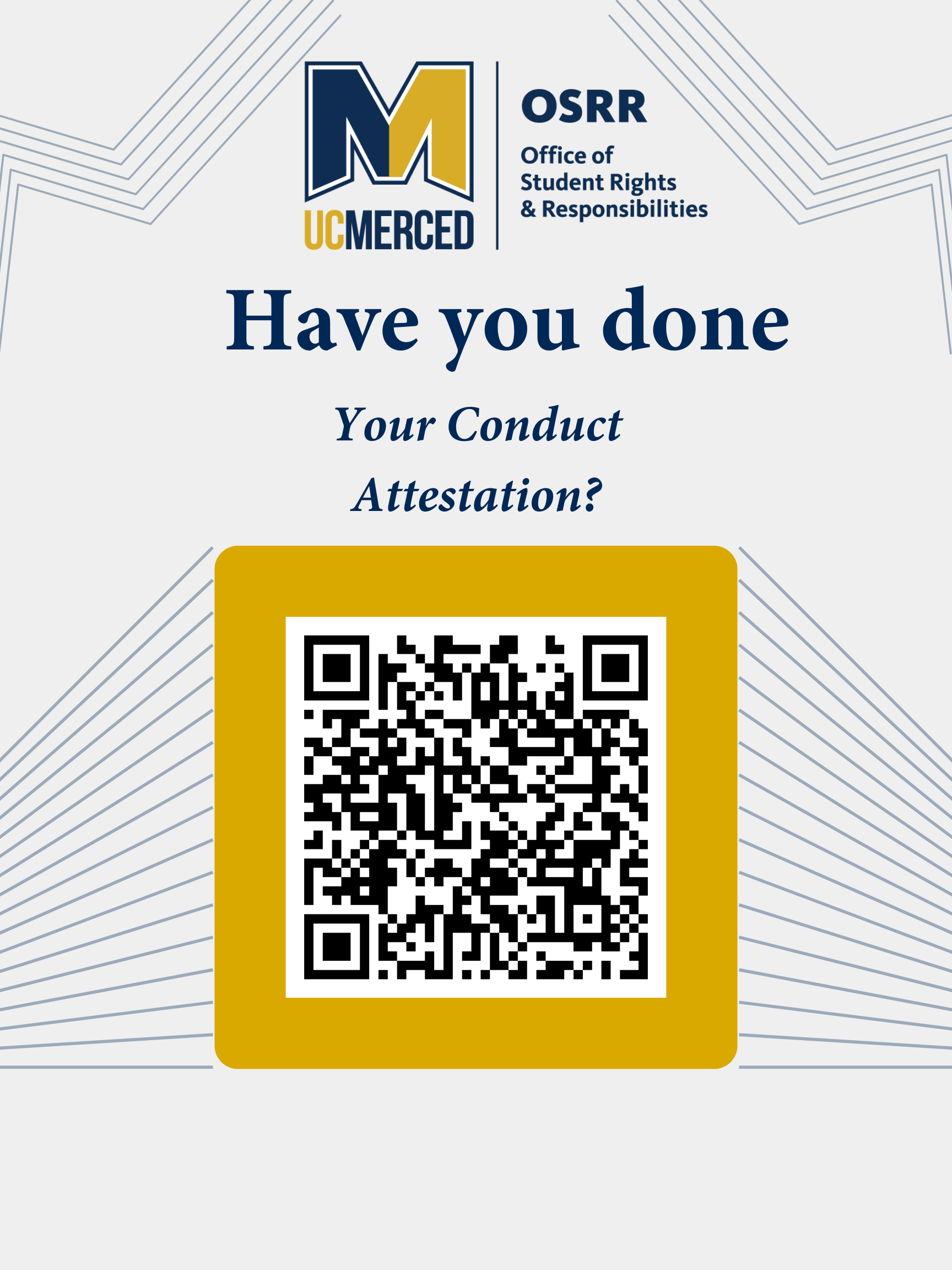The Office of Student Rights and Responsibilities at UC Merced supports the building and strengthening of our campus community through the use of restorative practices.
Students involved in the conduct process have the opportunity to explore options that allow them to acknowledge personal accountability for harm done, understand the impact of their actions on others and the larger community, and as appropriate, take steps to repair harm and rebuild trust.
This process allows students to re-engage and reinvest in their community taking more personal responsibility for their actions moving forward.
Watch the video for an in-depth explanation of the purpose and importance of restorative practices.
Additional Resources:
“Restorative justice is a process to involve, to the extent possible, those who have a stake in a specific offense and to collectively identify and address harms, needs, and obligations, in order to heal and put things as right as possible.”
-Howard Zehr, The Zehr Institute for Restorative Justice, The Little Book of Restorative Justice
“Restorative Justice is a philosophical approach that embraces the reparation of harm, healing of trauma, reconciliation of interpersonal conflict, reduction of social inequality, and reintegration of people who have been marginalized and outcast. RJ embraces community empowerment and participation, multipartial facilitation, active accountability, and social support. A central practice of restorative justice is a collaborative decision-making process that includes harmed parties, offenders, and others who are seeking to hold offenders accountable by having them: Accept and acknowledge responsibility for their offenses; to the best of their ability, repair the harm they caused to harmed parties and the community; and work to rebuild trust by showing understanding of the harm, addressing personal issues, and building positive social connections.”
-David Karp, University of San Diego, The Little Book of Restorative Justice for Colleges and Universities






